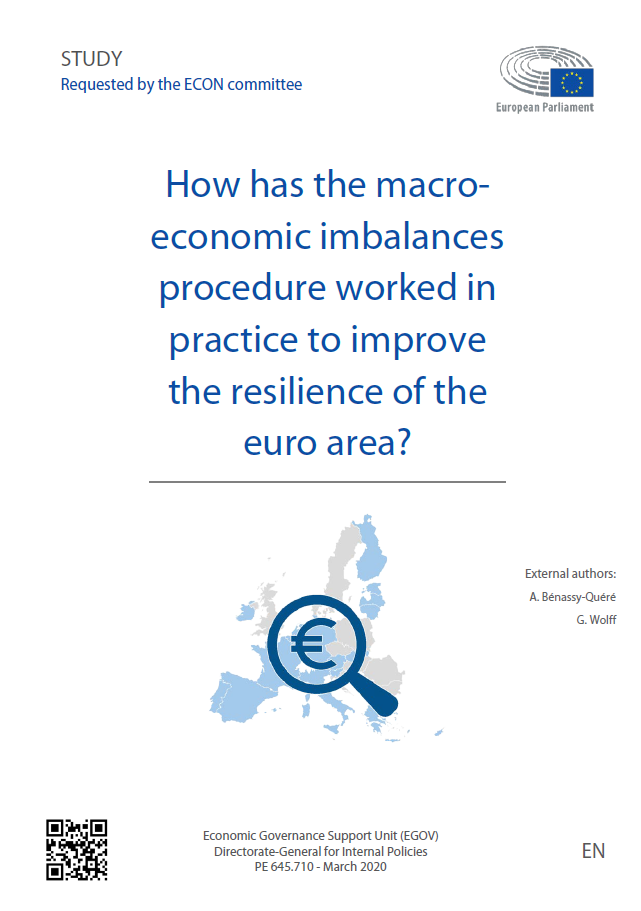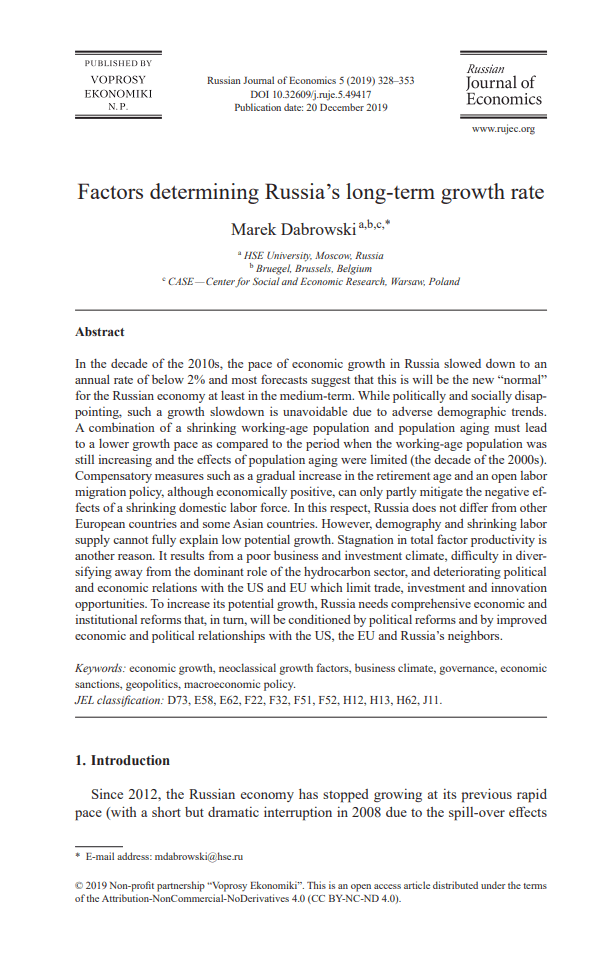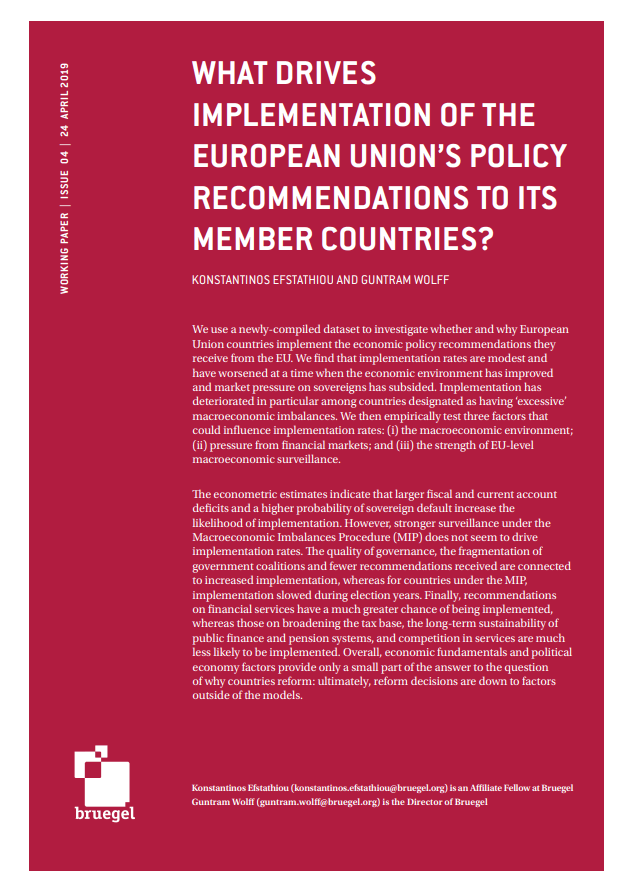How has the macroeconomic imbalances procedure worked in practice to improve the resilience of the euro area?
This paper shows how the Macroeconomic Imbalances Procedure (MIP) could be streamlined and its underlying conceptual framework clarified. Implementation of the country-specific recommendations is low; their internal consistency is sometimes missing; despite past reforms, the MIP remains largely a countryby-country approach running the risk of aggravating the deflationary bias in the euro area.
We recommend to streamline the scoreboard around a few meaningful indicators, involve national macro-prudential and productivity councils, better connect the various recommendations, simplify the language and further involve the
Commission into national policy discussions.
This document was prepared for the Economic Governance Support Unit at the request of the ECON Committee.
By: Agnès Bénassy-Quéré, Guntram B. Wolff and alihan
Topic: Macroeconomic policy
Date: March 24, 2020










